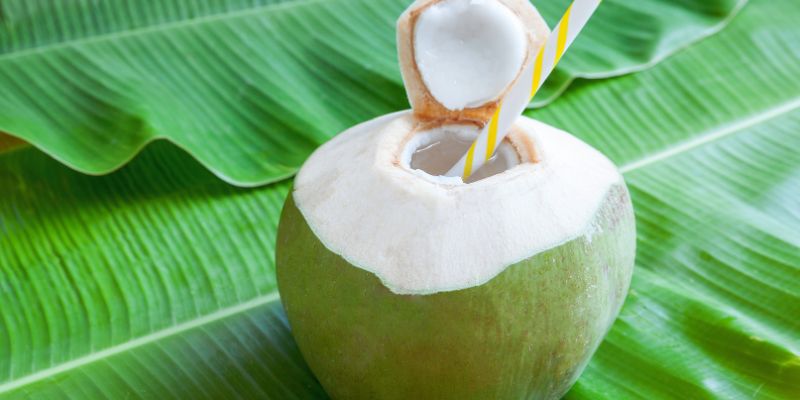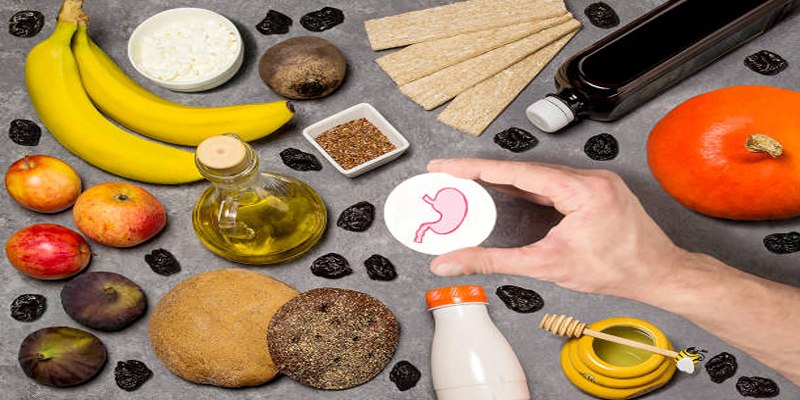Does Coconut Water Help Manage Diabetes Symptoms: An Understanding
We always hear about the numerous benefits of coconut water. But did you know that it can also reduce diabetes symptoms? Thats because fresh Coconut water has very low sugar content and contains various vital minerals and vitamins that enhance insulin sensitivity.
Besides that, with continuous intake of coconut water, people with diabetes can overcome the symptoms of high blood glucose levels. Though, even then coconut water still contains some sugar. Therefore, doctors prohibit drinking too much coconut water. Read on to learn more about the pros and cons of coconut water for diabetes patients!

Can People With Diabetes Drink Coconut Water?
The answer is a year, and that is because coconut water is a healthy dose of hydration. People with diabetes need more water than non-diabetic people. High blood sugar levels in a person dehydrate the body if they sufficiently hydrate; it will help them stay healthy. Besides, coconut water has a lower sugar index than other drinks, so it does not cause a massive sugar spike.
Coconut water is also rich in vitamin C and various minerals, including potassium, magnesium, manganese, etc. These contribute to regulating blood sugar levels by lowering oxidative stress. Reduced oxidative stress increases insulin sensitivity and decreases complications, leading to lowered symptoms of diabetes.
Also, coconut water has been found to reduce liver fat, cholesterol levels, and blood pressure. It ultimately helps people with diabetes to overcome overall symptoms of high blood sugar levels. It is also a healthier option than most sugary drinks you may find in grocery stores because they contain different artificial flavors. Coconut water has some amount of natural sugars in it. It also has healthy carbs, so taking mindful portions of coconut water, preferably what your doctor prescribes, is necessary.
Benefits Of Coconut Water For Diabetes
Coconut water is richer in nutrients than whole milk, has natural sweetness, and is healthier than most fruit drinks. It is a great source of strength and energy. Let's learn about the nutrients present in coconut water and see how they help regulate blood sugar:
- Vitamin C (2.4mg): Vitamin C is an antioxidant that helps reduce oxidative stress. Oxidative stress causes the cells of your body to be damaged, including beta-cells in the pancreas, which are responsible for insulin production. Vitamin C prevents beta cell damage and preserves insulin content in your body. Due to its antioxidant nature, vitamin C also tends to remove toxins from your blood. This way, vitamin C helps prevent high glucose concentrations in the blood.
- Magnesium (25mg): Magnesium is one of the most important minerals in your body. It helps secrete insulin from the beta cells of the pancreas. It also improves the metabolic activity of cells, allowing them to break down glucose for energy more effectively. Magnesium supplements are given to patients with very high blood glucose levels. Too much magnesium intake can even lead to hypoglycemia (very low blood sugar). Magnesium also reduces blood pressure, reducing stress on blood vessels. It is best for improving overall immunity.
- Potassium (250mg): Potassium is a vital mineral in your body that is directly related to insulin production. If your body lacks potassium, it cannot secrete insulin. Potassium helps vascular smooth muscles to function properly. This ability relaxes the endothelial layer of tissues in beta cells in the pancreas, which helps the pancreas secrete more insulin. High potassium levels in one's blood can also lower blood pressure, reducing hypertension, a symptom of type 2 diabetes. Too much potassium can lead to very low blood pressure, which can cause health complications. Identifying the correct amount of potassium intake is crucial.
- Manganese (0.142mg): Manganese is an important antioxidant and metabolic regulator. Manganese deficiency has been found in type 1 and type 2 diabetic patients. Due to its antioxidant nature, manganese is a defense against free radicals in the blood, reducing oxidative stress. Manganese plays a great role in improving glucose metabolism and immunity, reducing insulin resistance. It may also be beneficial for hypoglycemia. Manganese regulates the correct amount of sugar in the blood overall.
Coconut water contains all of the nutrients above, and now you know how each helps to regulate blood sugar in your body. Coconut water also helps prevent skin-related issues and solves digestion problems.

Ways To Add Coconut Water To Your Diet
Here are the best ways you can add coconut water to your diet:
- Blend It In Smoothies: To enhance the richness and taste, you can use coconut water as a base instead of milk or normal water.
- Mix With Other Fruit Juices (With Low Sugar Content): You can add coconut water to different fruit juices, such as oranges, pineapples, mangoes, apples, etc., to dilute them and add extra hydration.
- Sip It Raw: The best way to drink coconut water is straight from the coconut. It's natural, lightly sweetened, and rich in nutrients and hydration.
- Coconut Ice Cream: You can add different fruits of your choice to the mold, add coconut water, and freeze it. It's the best dessert to kill the summer heat.
- Coconut Rice: You can cook rice in coconut water to give an extra dose of richness and a unique taste.
- Coconut Soup: You can cook coconut soup with all your favorite vegetables. It is the best way to drink coconut water in winter. It provides a complete dose of hydration and has a rich taste.
Precautions Related To Coconut Water For Diabetics
Here are some precautions that you need to take into account while consuming coconut water:
- Don't drink coconut water if you have kidney problems or cystic fibrosis. Coconut water contains high potassium, which can worsen kidney problems.
- Never mix coconut water with coconut oil or coconut milk. These are different things, and they must be consumed separately.
- Diabetes patients are advised to drink only one cup a day (240ml). More than that may cause complications as it has 2.61g of sugar.
- Drinking a lot can cause complications, including imbalanced blood sugar.
- Always consult your doctor regarding the correct amount of coconut water consumption, as it may vary between pre-diabetics and diabetics.
Conclusion:
Coconut water is a great source of hydration, energy, and strength. It has several vitamins and minerals that can help regulate blood sugar for diabetic patients. Very high consumption of coconut water is not recommended, especially when it is sweetened with artificial flavors. Artificially flavored coconut water can increase sugar spikes instead of lowering them. You can add coconut water to your diet in different ways to manage your blood sugar levels. Precautions should be taken before consumption of coconut water. Everybody's body responds differently; closely monitor how your body responds by monitoring blood sugar levels.












